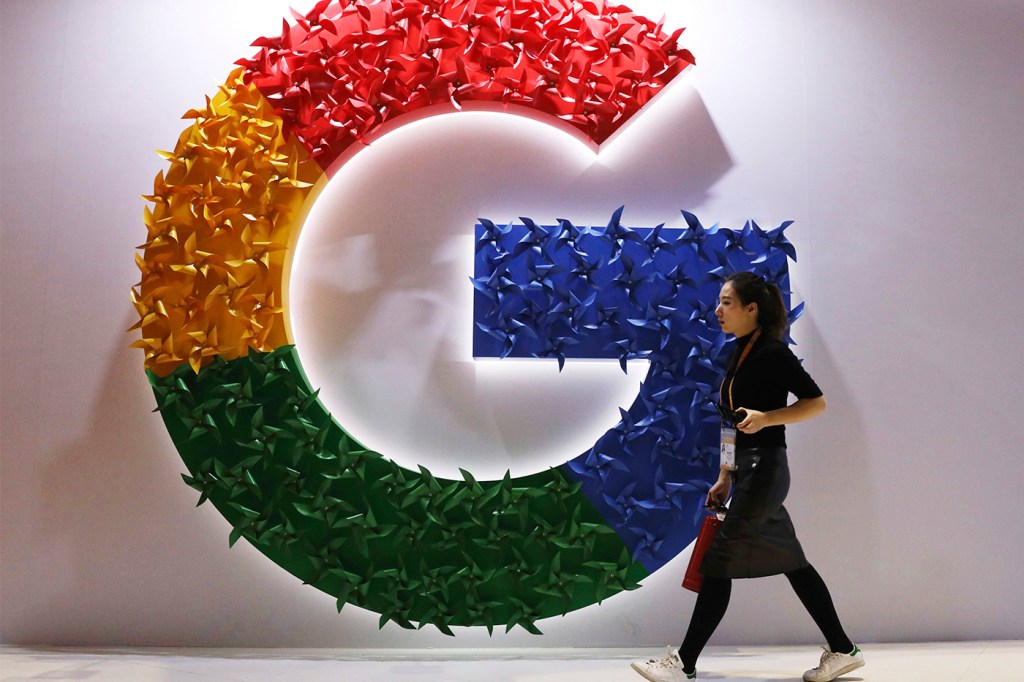The DOJ wants to force Google to sell Chrome. What would a Google-less Chrome mean for your browser?
The Justice Department’s landmark proposal would fundamentally change the tech and internet landscape. But a Northeastern expert says there might be something even more important than Chrome.

The U.S. Justice Department has officially proposed breaking up Google, calling for a federal judge to force the search giant to sell Chrome, the most popular web browser in the world. The filing comes as part of the government’s landmark case that found Google has a monopoly on online search, in violation of U.S. antitrust law.
Chrome is the most widely used web browser on the planet, dominating with about 66% of usage and billions of users. Separating Google from its browser would be one of the most significant antitrust penalties against a tech company in decades, one of a few that the DOJ has included in its proposal.
Others include a ban on multi-year contracts with companies like Apple and Samsung to make Google their default search engine and a requirement that Google syndicate its U.S. search results to competitors. Google has already pushed back against the DOJ’s proposals.
Divesting Google of Chrome is perhaps the most significant part of the DOJ’s filing, one that would inevitably impact the many people who use Chrome, says Christo Wilson, a professor of computer science at Northeastern University.
Some of these changes would happen as soon as Google hands over the keys.
“These features in Chrome that depend on Google, like locking into Google accounts, that stuff is all going to break immediately,” Wilson says. “Google is not going to support some third party with that stuff.”
More broadly, the search experience would likely look and feel very different on a Google-less Chrome, potentially in ways that could provide a model for other browsers.
“Whoever owns Chrome is going to have to decide who the default search engine is or if they are going to present people with a choice screen and what that’s going to look like,” Wilson says. “What the DOJ hopes is that whoever gets Chrome will innovate in this regard, maybe try to bundle it to a new search engine or strike a new deal with somebody else.”
Part of the impact of forcing Google to sell Chrome will depend on which company or other entity takes control of the browser. Wilson says the prospect of owning the most popular browser is likely very enticing for major players in artificial intelligence, like OpenAI and Anthropic. If one of those companies acquired Chrome, Wilson anticipates “they’d immediately replace the search engine with a chat-based interface.”
“They’re building that stuff now,” Wilson says. “They’d love to get that in front of a billion people.”

However, Wilson notes there is one part of Google’s search portfolio that is just as valuable as Chrome, one that could complicate the DOJ’s attempt at breaking Google’s monopoly. It’s called Chromium, and it is the technical backbone behind not just Chrome but most web browsers.
Chromium is an open-source project that Google has developed and made available for third parties to use as the foundation of their own browsers. Microsoft Edge, Brave and Opera are all branded versions of Chromium, and so is Chrome.
Featured Posts
Forcing Google to sell Chrome could potentially make the search market more competitive. But if Chromium is not also part of the DOJ’s focus, then Google will still maintain an incredible amount of market power.
“If they’re really just saying, ‘Give up Chrome,’ that would be very weird because Google would still control all the underlying technology and they could just tank anyone who would try to do stuff with it, including anyone who ends up owning Chrome,” Wilson says. “[Chrome is] a very powerful derivative with a huge user base, but immediately what Google would try to do, I think, would be to undermine them through the control of the underlying technology.”
Even if Google is forced to sell both Chrome and Chromium, the company is still free to build a new browser. It becomes much easier for Google to maintain a stranglehold on the browser market if it also still owns Chromium.
“They’ll immediately be like, ‘Guess what? The Google 2.0 browser is the new thing. Everyone should use that,’” Wilson says. “So, they may set out to undermine whoever holds the technology anyway. That’s going to be a much more powerful play if they still control Chromium.”
Google is not the only one with options though. The company is also entering the closing stages of another antitrust trial focused on its potential monopoly and anticompetitive practices in the online advertising space. Wilson notes he would not be surprised if the DOJ hammers its point home and that “one of the remedies in that case … is also to divest Chrome.”











